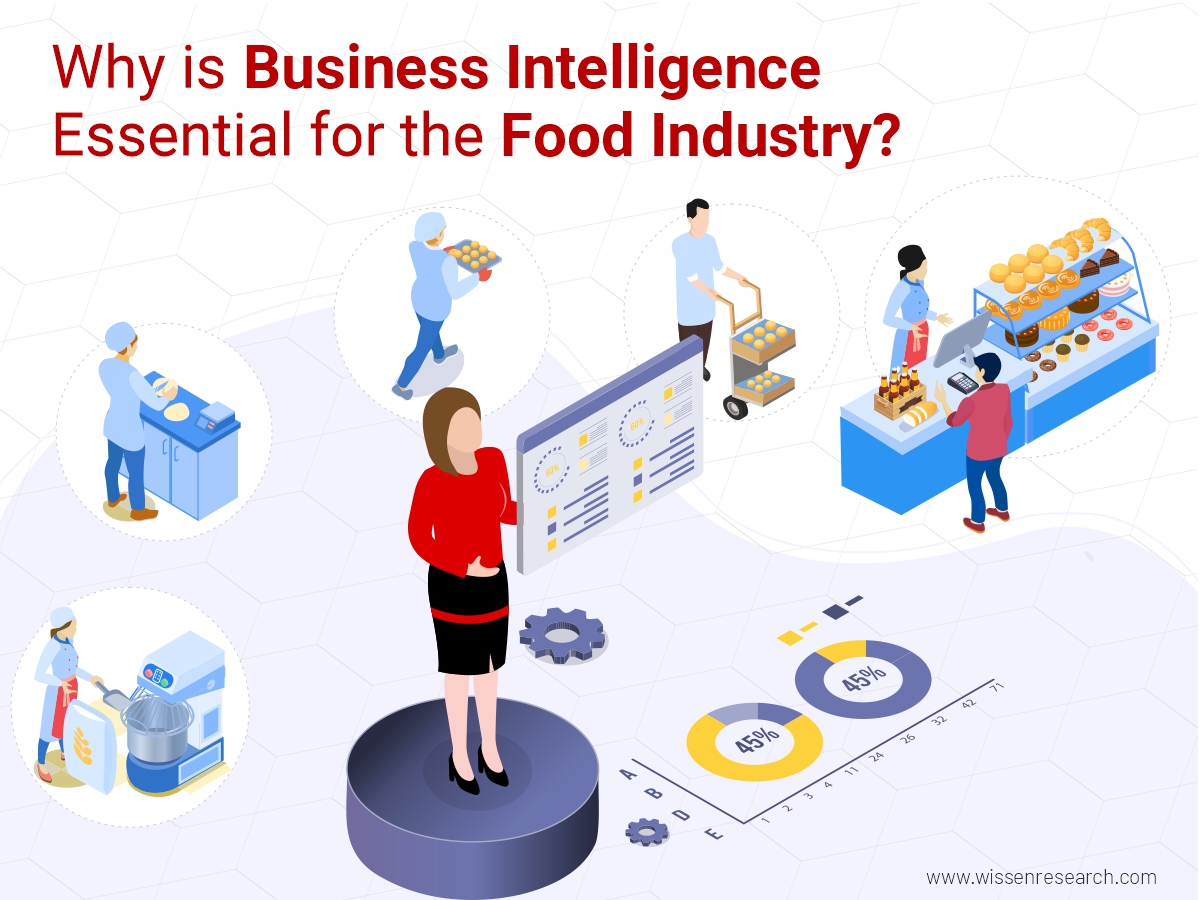
Close


In today’s competitive world, every industry needs to stay ahead of the game to succeed. The food industry is no exception. The food industry is one of the largest industries in the world. It is a complex and dynamic sector that is continually evolving.
The food industry involves numerous stakeholders, from farmers and food processors to distributors, retailers, and consumers. The complexity of the food industry presents a significant challenge in managing the business effectively.
The need for real-time data and insights is critical to make informed decisions, optimizing operations, and improving profitability. This is where business intelligence (BI) comes into play. BI provides valuable insights into the food industry’s performance, enabling businesses to make data-driven decisions.
Business intelligence (BI) refers to the use of technology, processes, and strategies to analyze data and provide insights that support decision-making. This includes business analytics, data mining, and data visualization, among others. The goal is to provide a comprehensive view of the data and use that information to effect change, cater to demands, improve efficiency, and quickly respond to changes in the market or supply chain.
BI enables businesses to transform data into actionable insights, providing a competitive advantage. BI helps the food industry gather insights into customer behavior, market trends, and product performance. By leveraging BI, the food industry optimizes its operations and gains a competitive edge in the market.
Also, BI is not a one-size-fits-all solution, and the implementation of BI should align with the organization’s specific goals and objectives.
The food industry is a complex and multifaceted sector that encompasses several different areas. These include food production, processing, packaging, distribution, and retail. Each area has its unique challenges, and managing the entire supply chain is a daunting task. In addition, food industry businesses are subject to a range of regulations, including food safety laws, labeling requirements, and environmental regulations. This complexity makes it challenging to manage the business effectively and make informed decisions.
Data and analytics are critical to the success of the food industry. Data provides insights into the performance of the business, identifies trends, and highlights areas for improvement. Analytics help businesses optimize their operations, reduce costs, and improve customer experiences. For example, BI helps food manufacturers optimize their production lines, minimize waste, and improve product quality. Retailers leverage BI to analyze customer data and optimize their product offerings and marketing strategies.
The food industry is constantly changing, and it is essential to stay ahead of the trends to be successful. By using BI, the food industry tracks trends in customer preferences, dietary habits, and food choices. This helps businesses create products that meet the needs of their customers and stay relevant in the market.
BI helps the food industry optimize its operations by analyzing data on sales, inventory, and production. This helps businesses identify areas where they can reduce costs and increase efficiency, such as optimizing the supply chain, improving production processes, and managing inventory levels.
BI also helps the food industry improve its marketing efforts by analyzing data on customer behavior and preferences. This helps businesses create targeted marketing campaigns that resonate with their customers and increase sales.
The food industry is all about customer experience, and BI helps businesses understand their customers better. By analyzing data on customer feedback, reviews, and social media activity, businesses identify areas where they need to improve their products and services to enhance the customer experience.
BI helps the food industry monitor its competition. By analyzing data on market share, pricing, and product performance, businesses identify areas where they need to improve to stay ahead of the competition.
In conclusion, the food industry needs business intelligence to thrive in today’s competitive environment. BI provides valuable insights into the industry’s performance, enabling businesses to make informed decisions, stay ahead of the curve, and position themselves for long-term success.
The use of BI helps businesses optimize their operations, reduce costs, and improve profitability. BI provides valuable insights into the food industry’s performance, enabling businesses to make data-driven decisions. As such, businesses in the food industry should consider investing in BI to stay competitive and position themselves for long-term success.
The benefits of BI are clear, and the future of the food industry is expected to be shaped by the use of BI.
Authored by – Guniyal Bagga
Please Subscribe our news letter and get update.
© Copyright 2023 – Wissen Research All Rights Reserved.
Powered by VintageCoders